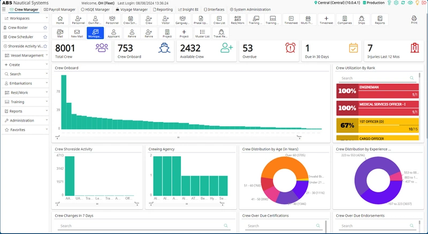Guyana's Minister of Natural Resources, Raphael Trotman said while there is no perfect contract, the government is comfortable with the terms and conditions spelt out in the Stabroek Petroleum agreement between itself and ExxonMobil and prefers a long-term, stable relationship with one exploration company rather than several.
“We recognised that we had with us a company that had made a discovery, had a binding contract with the government and people of Guyana which had been signed in 1999, was brave and committed to developing the resource, had the capacities [both] financial and technical capacity to do so and government believed that it should enter into a long-term stable relationship with this company,” Minister Trotman said.
In addition, the Natural Resources Minister said that Government’s decision was also premised on advice received from local and international experts.
“We have had some advice… and one such bit of advice is that we should – given our relative size, a nation with under one million people, our relative underdevelopment and our relative inexperience – try to stabilise our relationship rather than go out and quote 15 and 20 companies to come into our waters and develop the resource. We should try to manage what we had discovered build better relations with the company that had made the discovery and make that a long-term objective. To that extent, the model which Botswana used was the one that the international financial institutions recommended to us,” Minister Trotman added.
Addressing critics who claim Guyana is receiving too little, especially from royalties, Minister Trotman explained that the structure of benefits the country will get from its partnership with the oil giant is within the realms of that received by many other countries. Under the new agreement, the current administration was able to increase the annual rental fee from $240,000 per year to US$1M per year, royalty from zero percent annually to two percent annually, training fee from US$45,000 yearly to US$300,000 yearly and an additional US$300,000 yearly for social responsibility and environmental support.
“Firstly, there are different types of contracts. There is the production share or profit-sharing contract which is what we inherited in 1999 and there is also the royalty based contract. We were already receiving 50% of the profits as an equal partner, having not sunk a single cent into the development of the block.” Minister Trotman further explained “we, however, decided that we would come up with a hybrid of that production share agreement and put the feature of a royalty on top of that. Many countries have either the production share or they have the royalty based… we decided that we would try to enjoy the best of both worlds and was successful in convincing Exxon, even though there was no legal basis on which a renegotiation could pursue because there was no frustration of contract no breach of contract the only thing that changed was a discovery and a change of government it was a binding lawful contract which Exxon was entitled to enforce should we decide not to accept it.”
Further, Minister Trotman pointed out that the 2016 contract the administration signed with ExxonMobil was a slight modification of a binding and enforceable contract the company had with the People’s Progressive Party / Civic government since 1999 and the modifications resulted in increased earnings for the country.
“It is the decision of this government that we would continue the agreement that had been entered into by the previous PPP/ Civic administration and that we would make minor modifications rather than enter into protracted long-term negotiations with the company. To the extent that we were able to raise some of the fees, we were able to introduce a 2 % royalty where previously there was zero royalty,” the Minister explained.
Minister Trotman said for strategic and other reasons, the government chose not to enter into a full renegotiation of this contract. “Based on our efforts and by our calculations we can now receive on a daily basis when production commences in 2020, close to 1M USD per day so at the end of the year Guyana will earn about 300M USD which is as a result of what some may determine to be a modest royalty rates, but it is significant because this is money that does not come from a grant or a loan or it is not the fruits of taxes. This is money that will accrue to us daily.”
Meanwhile, at a Post Cabinet media briefing, hosted by Minister of State, Joseph Harmon earlier on Friday December 29, Minster Trotman revealed that when oil production begins in 2020 the government is expected to be the recipient of about 12,000 – 14,000 barrels of crude daily. The administration is still to make a final decision on how it will refine and market the crude oil. (By Kidackie Amsterdam, DPI/Department of Public Information)













